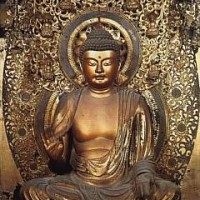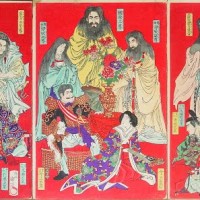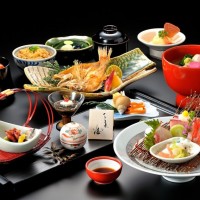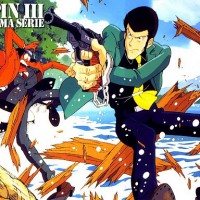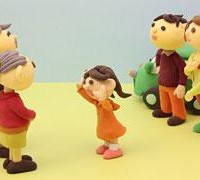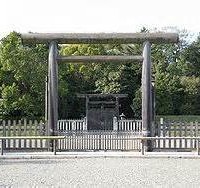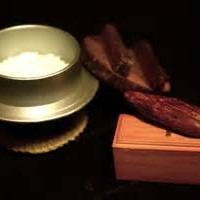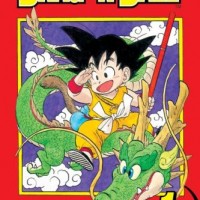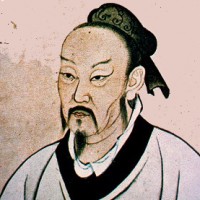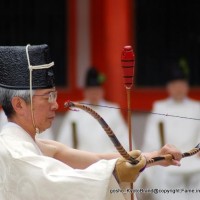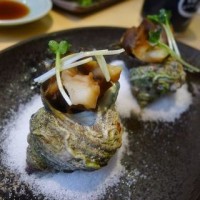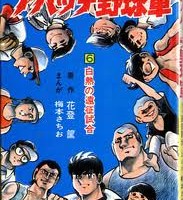blog
Tuesday: Japanese Proverb (Nihon-no Kotowaza)
09/24/2015 blog
Shaka-ni Seppo (Statue of Shaka/Buddha) “Shaka (Buddha)” exemplifies someone that is supremely knowledgeable. He is so perfect that nobody else can preach or teach him. No way! Today’s proverb teaches you that it is totally ridiculous of you if you try to preach or teach Shaka or someone that is 100 times as knowledgeable as you are. Still you know at least one or two who tend to preach or teach others, don’t you? (Buddhist Monk Apprentice Preaching Ichiro How to Swing the Bat …) <Translation> Teach your grandmother to suck eggs.
Monday: One Point Japanese Clinic
09/23/2015 blog
Toshokan (Public Library) (Typical Public Library) Imagine – You can read Japanese books as fast as the Japanese (Note: Japanese public libraries usually don’t have original copies written in foreign languages including English)! You have a library card from a local public library in your neighborhood and check out some books. The procedures are almost same as in US. Look up the database in a computer, write down its library code, look on the shelf, and take it to the checkout counter – You have already done this procedure quite often back in US, haven’t you? (Inside the Public Library) (Inter-Library Service is available!) (Looks familiar?) (After School Program) …
Friday: Kojiki (「乞食」ではなく『古事記』ですヨ!!) #31
09/21/2015 blog
Search for Jimmu’s Empress (Can you identify Emperor Jimmu?) Before he was enthroned, Emperor Jimmu had been already married and had two children. Their names are Tagishimimi-no Mikoto and Kisumimi-no Mikoto, whose mother is Ahirahime. Ahirahime was not the Empress. Now that Kamuyamato was enthroned to be the first Emperor of Japan called Jimmu, he needed his Empress. Ookume-no Mikoto had one recommendation for Jimmu’s Empress. Ookume-no Mikoto humbly explained to Jimmu about his recommendation. “There is a fine lady called ‘the Child of the Heaven.’ I will explain why she is called that way. Here mother’s name is Seyadatarahime, who is very beautiful. Oomononushi-no Kami guarding Miwayama (Miwa Mountain) fell …
Thursday: Japanese Food
09/17/2015 blog
Kaiseki Ryori (会席料理) (Typical Japanese Kaiseki Ryori) Looks beautiful, doesn’t it? This is a good example of “Kaiseki Ryori” in Japan. Usually Kaiseki is an 8-course dinner or a dinner of 8 courses. Sometimes it is served one course after another. All 8 courses are served at one time like the picture above. You can tell this is a very official meal if you are a good observer. You don’t go to a restaurant and order like “Kaiseki for me, please!” No way. You need to make an appointment or arrangement with a particular restaurant which serves Kaiseki. That is because not all Japanese restaurants serve Kaiseki. The word, Kaiseki, …
Wednesday: Japanese Manga
09/17/2015 blog
Rupan Sansei (Lupin the Third) (TV Version: https://youtu.be/dmWB0IoWXZY) The comic version of “Lupin III” started in “Weekly Manga Action (weekly manga magazine)” in 1967. The name of the author is “Monkey Punch (Of course, it’s a pen name!).” In a word, Lupin III is a tremendously humorous version of James Bond (007). Only difference is that Lupin III (He claims that he is the grandson of “Arsene Lupin” featured in a popular French mystery written by Maurice Leblanc!) is a master thief while 007 is a hard-boiled spy (a secret service agent). Its TV version started in 1971 (over 40 years ago!), which has been still running with several intermissions (https://en.wikipedia.org/wiki/Lupin_III). (Comics Version) All …
Tuesday: Japanese Proverb (Nihon-no Kotowaza)
09/16/2015 blog
Koko(-no) Shitai Jibun-ni Oya-wa Nashi (Are you visiting your parents often?) Originally the concept of “Koko” came from Confucian teachings designed only for the Samurai class. If it was simply adopted idea from Confucius, the idea would have been spread out only in Samurai class. Now you know what I mean. The concept itself was adopted from Confucius, but the ethics of “Koko” had been already existed before its adoption. Even at the bottom of the Japanese social class, the ethics of “Koko” was widely appreciated. Those who follow the ethics are highly admired while others who neglect the ethics ended up with outcasts. (Massaging your parents are considered as …
Monday: One Point Nihongo Clinic
09/15/2015 blog
Gakko-no Toire Soji (Cleaning Restrooms at Japanese Schools) (Student Committee Members Cleaning Urinals) If you know a little about Japanese culture, you know Japanese students clean their classrooms, pools, pet cages, and restrooms after school every day, don’t you? Didn’t know that? And you are about to go study in Japan as an exchange student? You’ve got a problem! This way the Japanese kids are disciplined. It is not until you become a college student that you are released from this obligation. (groups in a class take turns) (teachers show good examples to their students) (even elementary school students follow the rules) Thus, there is no such a job as janitors …
Friday: Kojiki (「乞食」ではなく『古事記』ですヨ!!) #30
09/13/2015 blog
Emperor Jimmu Born (Tomb of Emperor Jimmu) Kamuyamato, who was backed by all the Heavenly Gods, continued his journey to the throne. The next challenge was waiting for him in Osaka (Sakurai, Nara, Japan – this is NOT “Osaka <大阪>”). There was a big rock cave. Inside, Yasotakeru (=Many Brave Men), who belonged to “Tailed” Tsuchigumo (the derogatory name of the local people who didn’t follow Kamuyamato), were ready to kill the Heavenly Child, growling viciously. (Later on, Tsuchigumo was to be depicted as Monster Spider like this!) Kamuyamato came up with a clever plan to kill them. He sent plenty of special special food to Yasotakeru with his own …
Thursday: Japanese Food
09/11/2015 blog
Neko Meshi (Katsuobushi Gohan) (Ready for Neko Meshi) Today I will go so simple. Still this tastes super duper good! Try it sometime if you are a fan of Japanese food! Well, “Neko” means cats while “Meshi” means boiled rice. “Meshi” is NOT appropriate for women to say, but this is NOT “Meshi” but “Neko Meshi.” That’ll be ok, then. Why is it called “Neko Meshi” and what is it like????? (Bonito Flakes called Katsuobushi over Rice – Birth of “Neko Meshi”) Why “Neko (Cats)?” Because it is flakes of bonitos!! Bonitos are fish, right? That’s cats’ favorite! (Waiting for fish!?) How do you make Katsuobushi (Bonito Flakes)? OK. Let …
Wednesday: Nihon-no Manga
09/11/2015 blog
Doragon Ball (Comic Version) (TV Version) Comic version of “Dragon Ball” started to be in Weekly Shonen Jump in 1984 and lasted till 1995. TV version has been aired at this moment since 1986 (https://en.wikipedia.org/wiki/Dragon_Ball). Personally I was a college student at that time, when you have already “graduated” from Manga World. When I was back in Japan, I had never watched the show on TV because I was not interested. However, I was amazed how popular it is in USA (all over the world). Public libraries have sets of Dragon Ball comics. As some of you know it, Goku, the name of the main character, comes from the classic …
Tuesday: Nihon-no Kotowaza
09/08/2015 blog
Sarumono-wa Owazu (Kitarumono-wa Kobamazu) (Mencius: https://en.wikipedia.org/wiki/Mencius) “Sarumono-wa Owazu” means “I do not pursue those who go away.” This expression comes originally from Mencius. “Do not try to bring someone back to you when he wants to leave you.” Usually this comes with another expression which goes, “Kitarumono-wa Kobamazu,” which means “I never refuse those who come.” When they are used in a set, it means “It makes no difference to me whether they desert me or stand by me.” Let people do whatever they want to. It is said that this expression was the motto of Mencius when he taught students. In Edo Period (1603 – 1868), Yoshida Shoin (https://en.wikipedia.org/wiki/Yoshida_Sh%C5%8Din) …
Monday: One Point Nihongo Clinic
09/07/2015 blog
Neko(k)kaburi/Kamatoto (faux-naïf) (“Puss in Boots” deceive his enemies with this innocent look!) (His regular look) Let’s analyze those words: “Neko,” as most of you may know, means “cats.” “kaburi (noun)” comes from “kaburu (verb),” which means “wear.” So, the expression, “Neko-wo Kaburu,” literally means “wearing a cat – ‘Puss in Boots’ kind of innocent looking cat.” Someone, especially women, wears a false mask to make her look innocent. When it turns into “Neko(k)kaburi (noun),” it simply means those who pretend to be what they are not. Double-faced. (Neko(k)kaburi) On the other hand, “Kamatoto” most likely means the women who pretend to be what they are not. This expression originates …
Friday: Kojiki (「乞食」ではなく『古事記』ですヨ!!) #29
09/06/2015 blog
Yatagarasu Protects Kamuyamato (Narikabura – Arrow which makes sound) (Commercial Narikabura sold at Shrines) Kamuyamato reached Uda region in Nara, where siblings named Eukashi and Otoukashi waited for Kamuyamato to kill him. The Heavenly Child sent Yatagarasu to them before he got there to see if those brothers would serve Kamuyamato. Yatagarasu flew there and gave them Kamuyamato’s message. Eukashi chased the messenger bird away with Narikabura. That is why the place where the arrow with sound fell is called “Kaburasaki.” Fortunately Yatagarasu was not killed by Narikabura. Those rebelious brothers tried to hire as many soldiers as possible so they would be able to kill the Heavenly Child. Their …
Thursday: Japanese Food
09/06/2015 blog
A Day Trip to the Beach (Sazae-no Tsuboyaki) (How To Eat “Sazae-no Tsuboyaki”) In Japan, students have summer vacation from schools late July through the end of August. During this summer time, families have a lot of obligations, including taking kids to the beach for swimming. Parents plan a one day trip to the beach beforehand. On the very day, kids are so excited that they can’t sleep. Families usually go to popular beaches by train or by car. What kids are waiting for, in addition to swimming, is go to Umi-no Ie (The House of the Ocean), which is located on site (on the beach!?) so customers take a …
Wednesday: Nihon-no Manga
09/02/2015 blog
Apache Yakyugun (Comic Version : 1970 – 1972) (TV version: 1971 – 1972 / First Episode: https://youtu.be/DdWTavCMbjI) The title means “Baseball Troop of Apache” – The Baseball Team whose players look like Apache (a Native American Tribe) Indians in US. As you see in the pictures above, all those are the players, none of whom wear baseball uniforms of any kind. They act like beasts. They play like beasts. Still, they are super talented in baseball! The main character named Dojima Tsuyoshi used to be a genius baseball pitcher, who won a highschool baseball championship with a miraculous perfect game. In those days, there was no draft system in professional …

